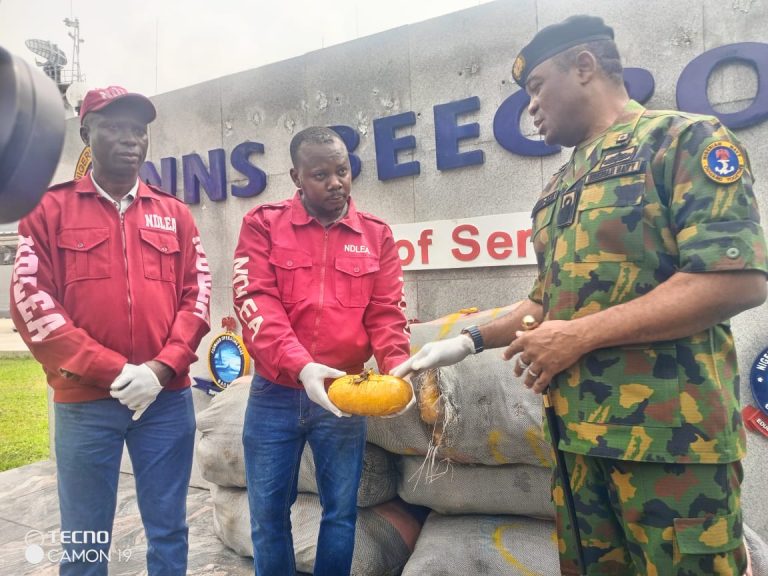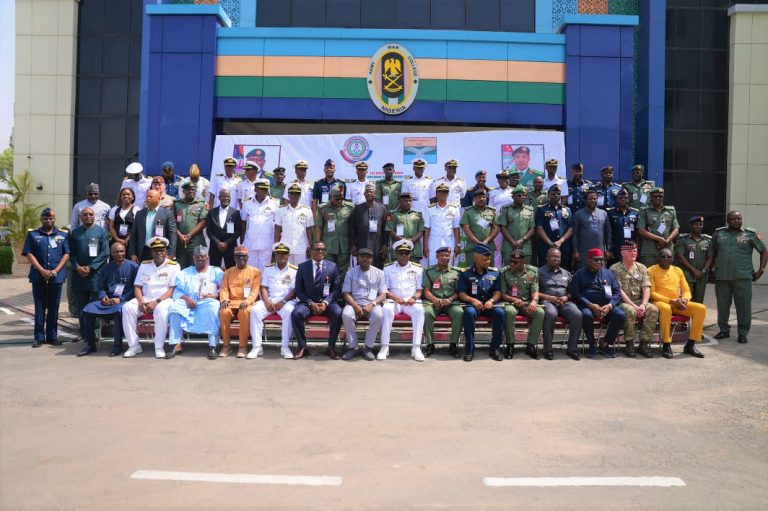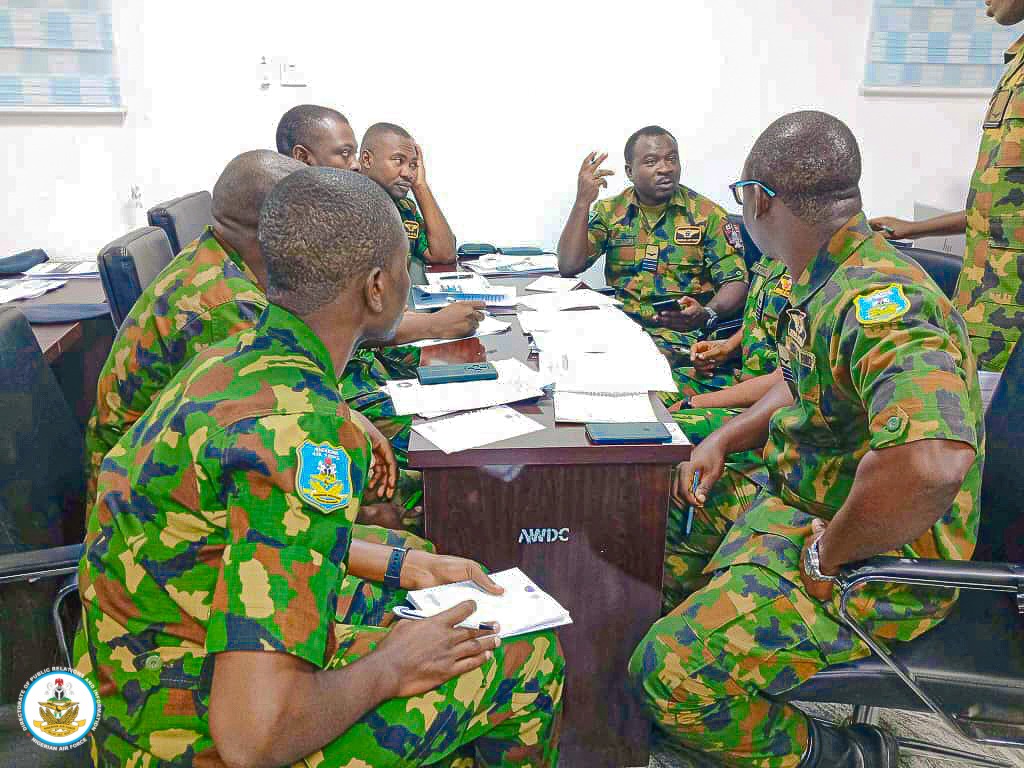
The Nigerian Air Force (NAF) has reaffirmed its frontline commitment to safeguarding civilians in conflict zones by completing an intensive five-day Civilian Harm Mitigation (CHM) in Air Operations course for the first batch of specially selected officers.
The programme brought together a cross-section of NAF personnel including pilots, unmanned aerial vehicle operators, armament specialists, legal officers, public relations experts, and more, underscoring the belief that protecting civilians requires a coordinated, multi-disciplinary approach.
The training was hosted by the Air Warfare and Doctrine Centre (AWDC), Abuja, and concluded on 15th August 202, and represents another decisive step in embedding civilian protection as a core pillar of NAF’s operational doctrine.
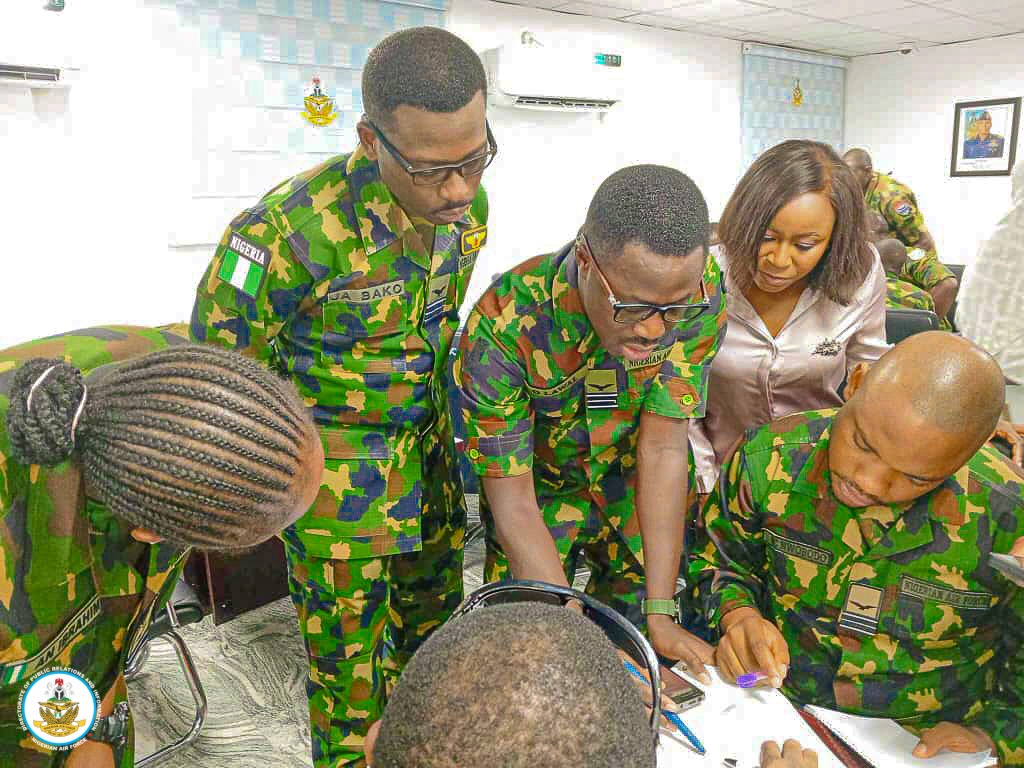
This was disclosed by the Director of Public Relations and Information (DOPRI), Headquarters, Nigerian Air Force, Air Commodore Ehimen Ejodame in Abuja on Sunday, explaining that the training was directed by the Chief of the Air Staff (CAS), Air Marshal Hasan Bala Abubakar and coordinated through the Civil-Military Relations Branch.
“The programme reflects the Service’s unwavering resolve to ensure that precision, legality, and humanity remain at the heart of every mission.”
He further disclosed that the CHM course, scheduled to run in three batches of about 30 officers each from 11th August to 5th September 2025, is delivered in partnership with Conflict, Security and Development Consult Limited.
During the training sessions for the first batch, officers underwent a rigorous curriculum covering International Humanitarian Law (IHL) in the context of Nigerian air operations, precision selection of ordnance to minimise collateral damage, the application of Rules of Engagement, Positive Target Identification Methods, targeting categorisation, the No-Strike List (NSL), and the Sensitive Target Approval and Review (STAR) process.
There were also practical modules which addressed advanced protocols for engaging sensitive targets under operational pressure.
Air Marshal Abubakar described the initiative as a natural extension of the NAF’s Civilian Harm Mitigation and Response Action Plan (CHMR-AP), inaugurated earlier this year.
“From the very beginning of my tenure, I made it clear that protecting civilians is not just a moral duty, it is a professional imperative,” the CAS stated.
“The CHMR-AP was our blueprint to institutionalize this principle, ensuring that every commander, crew, and analyst is trained to apply the highest standards of humanitarian consideration in mission planning and execution.”
The CAS noted that the CHMR-AP has already yielded measurable results, with a marked reduction in collateral damage incidents in recent months despite the sustained tempo of air operations.
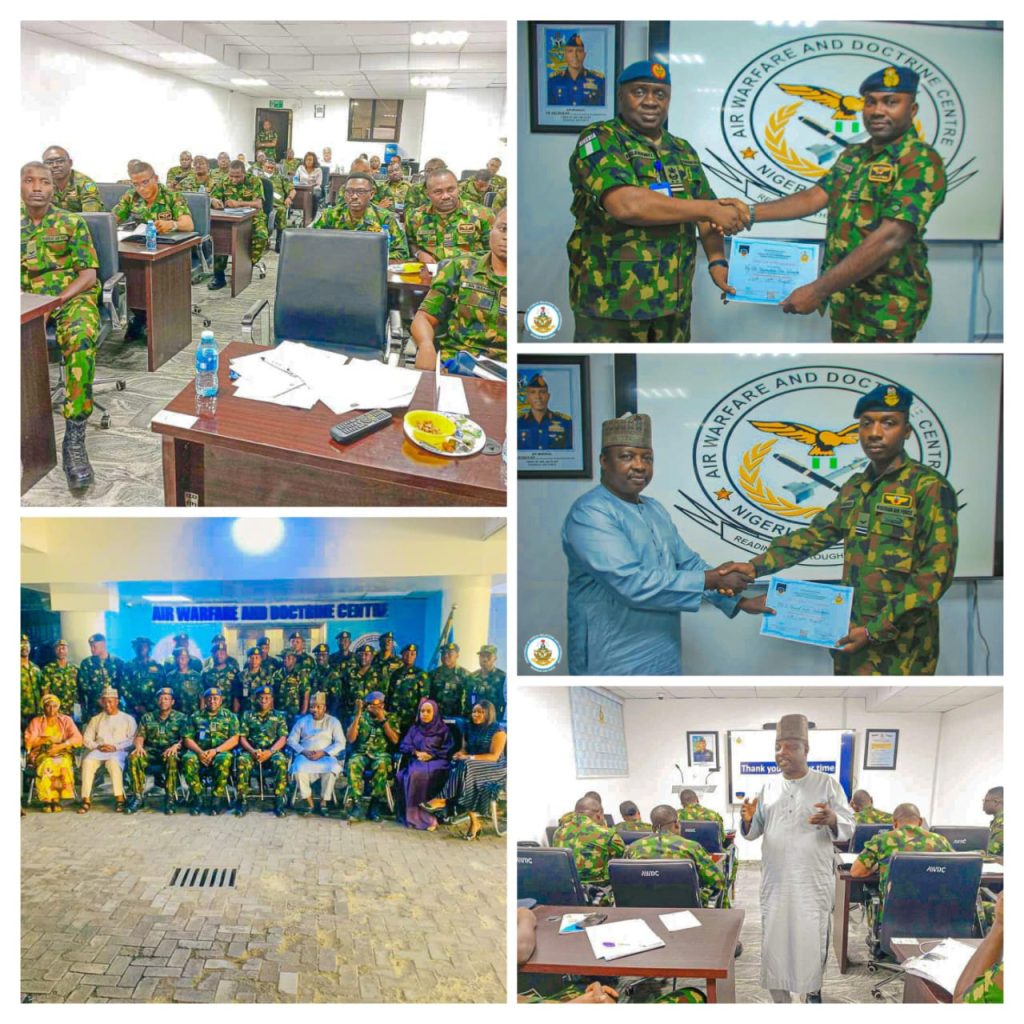
“We have seen the difference that deliberate planning, real-time intelligence, and strict targeting protocols can make. This training takes those lessons further, giving our officers the tools, judgement, and mindset to protect innocent lives even in the most complex operational environments,” he added.
Representing the Chief of Civil-Military Relations at the closing ceremony, Air Vice Marshal Edward Gabkwet stressed that the NAF’s approach goes beyond mere compliance with international law, framing civilian protection as a strategic advantage.
“When communities see that we take extraordinary measures to keep them safe, we build trust. That trust is a force multiplier; it strengthens intelligence sharing and isolates hostile actors.
Protecting civilians is not only the right thing to do, it is the smart thing to do,” he emphasised. The training reinforces the NAF’s recognition that modern air power demands more than precision strikes, it demands a deep commitment to humanitarian responsibility.
With the remaining two batches set to complete the course by September, the NAF is signalling that civilian protection will remain central to its mission profile in all theatres of operation.


